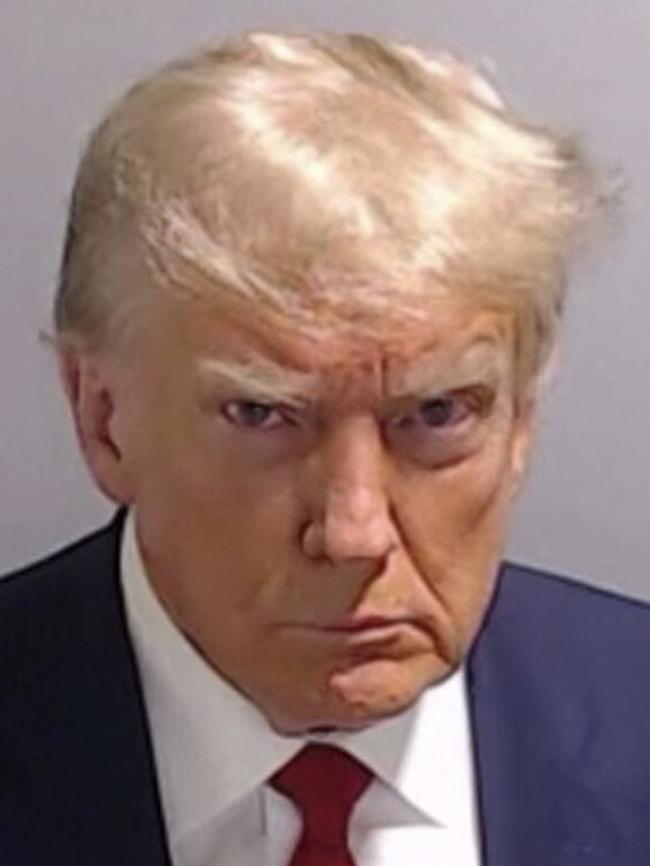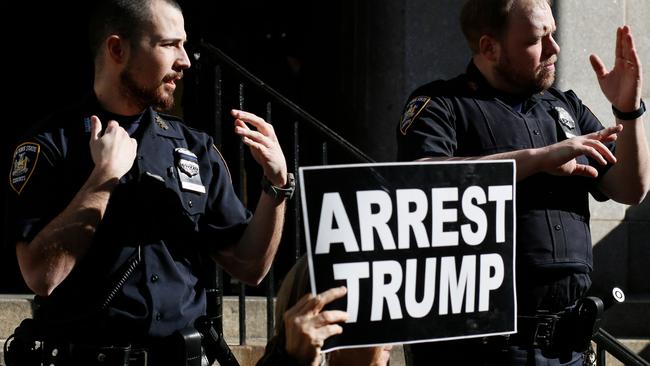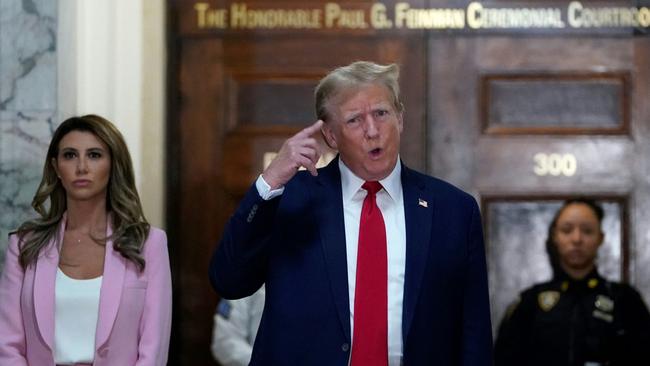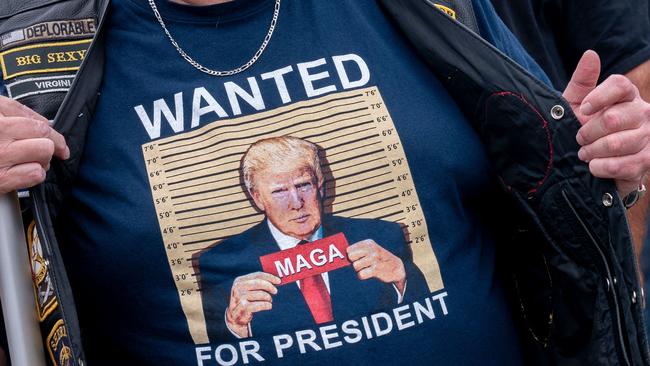US election: Will Donald Trump be president or prisoner?
This time next year, Donald Trump could be sworn in for his second term as American president or sitting in a prison cell. Here’s what it means for the race for the White House.
World
Don't miss out on the headlines from World. Followed categories will be added to My News.
This time next year, if the polls are to be believed, Donald Trump will be days away from being sworn in as the American president for a second time.
He may also be awaiting his inauguration in a prison cell.
There is no precedent for what would happen next. But such a scenario is no longer a mere hypothetical, because even though Trump is facing 91 criminal charges across four cases, he is set to be confirmed as the Republican candidate within weeks.
Ahead of Monday’s Iowa caucuses, which kick off the selection process, Trump holds a virtually unbeatable lead over his rivals.

And even if he is convicted, an overwhelming majority of Republicans still believe he should be their nominee to take on Joe Biden, with current polls putting the former president ahead in a 2020 election rematch this November.
So here is what we know – and what we don’t – about how this extraordinary year could unfold.
IS TRUMP ELIGIBLE TO RUN FOR PRESIDENT?
The short answer is yes. The US Constitution includes only three requirements for the presidency: that the occupant of the Oval Office is at least 35 years old, was born on American soil to American citizens, and has lived in the United States for at least 14 years.
Having a criminal record or even being in jail does not disqualify someone. The Socialist Party’s Eugene Debs received almost one million votes in the 1920 election won by Warren Harding, despite spending the campaign behind bars on a 10-year sentence for sedition.
Ironically, however, Trump could not vote if he is convicted of a felony before the election.

There is another twist. Section three of the 14th Amendment prohibits anyone who “engaged in insurrection or rebellion” after taking an oath to support the Constitution from holding public office – and, according to the Colorado Supreme Court, Trump’s actions after his 2020 election defeat and during the January 6 invasion of the US Capitol justify such a ban.
Constitutional law experts are sharply divided in their views on Colorado’s stunning verdict, which preceded Maine’s decision to also ban Trump from the ballot.
Other states have seen similar, unsuccessful attempts to strike him out.
This issue will ultimately have to be decided by the federal Supreme Court.
Rick Hasen, who runs the Safeguarding Democracy Project at the University of California Los Angeles, says the nine justices – three of whom were appointed by Trump – must deliver a “definitive judicial resolution … as soon as possible”.
WHAT HAPPENS IF THE TRIALS RUN ALONGSIDE THE ELECTION?
It depends on the case. Let’s start with the two federal prosecutions brought by special counsel Jack Smith, who has charged Trump over his alleged efforts to overturn his 2020 defeat and his mishandling of classified documents after leaving the White House.
If Trump returns to power, he could have his attorney-general instruct Smith and his team to abandon these cases, even if they are still in the middle of a trial or waiting for a verdict.
Cornell University constitutional law expert Michael Dorf says special counsels only have “functional independence” in the Justice Department, giving Trump the power to shut down Smith’s prosecutions.
“It would be grossly unethical but it would be legal, and there’s nothing anyone can do to stop that,” he says.

Trump is also facing two cases at the state level – in New York, over hush money paid to a porn star who claimed to have had an affair with him, and in Georgia, over his alleged efforts to overturn his 2020 defeat in that state – which he could not summarily dismiss.
Dorf suggests that if Trump is elected, he could mount a legal challenge to these cases continuing based on the Constitution’s supremacy clause, which essentially says that federal law takes precedence over state law.
“We don’t know whether there is a constitutional bar to a trial proceeding while he is president,” he says, although he points out that the Supreme Court found against Trump and Bill Clinton in two cases where they sought to sidestep legal action while in office.
COULD TRUMP BE PRESIDENT FROM PRISON?
Probably not – but he might have at least one get-out-of-jail-free card.
If Trump has been convicted and locked up on federal charges, Dorf says he could seek to pardon himself.
And even if such a self-pardon was deemed to be illegitimate, Trump could temporarily stand down and empower his vice president to pardon him instead.

“If he is elected and is in prison at the time of the inauguration, then it would be a matter of days or hours or even minutes before he’s out,” Dorf says.
The president’s pardon power does not extend to state convictions. Again, however, Dorf points to the supremacy clause which has been cited for the “not entirely frivolous argument” that a sitting president could not be imprisoned under state laws.
While this has not been tested, Dorf predicts Trump would file an appeal if he was jailed in Georgia, where the charges against him are far more serious than New York.
Such a legal challenge would also highlight the obvious logistical issues for an imprisoned president. The Secret Service has already encountered such problems this year, having had to navigate protecting the former president while he has been arrested four times.
More Coverage
Originally published as US election: Will Donald Trump be president or prisoner?





